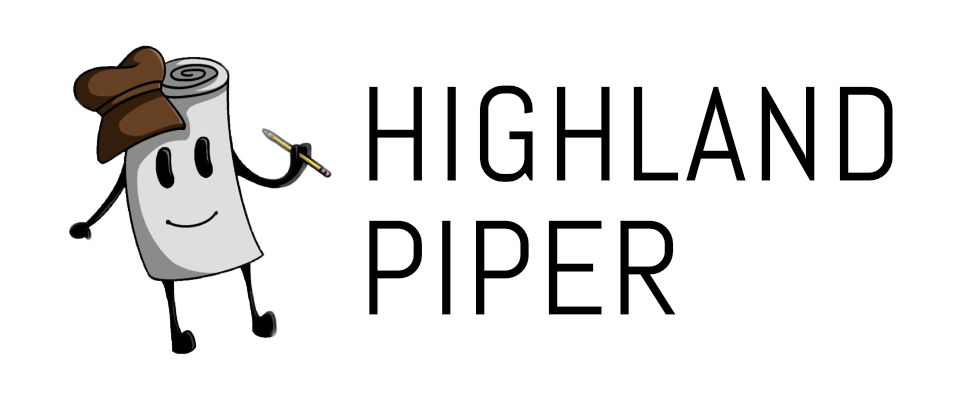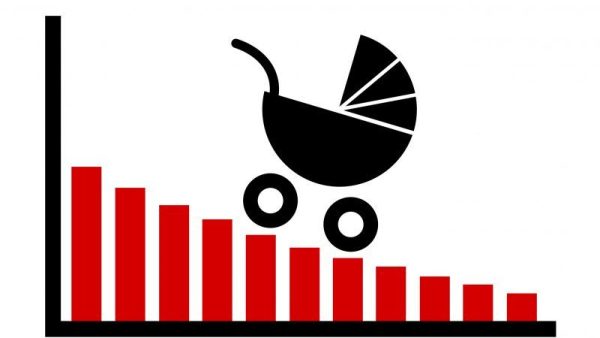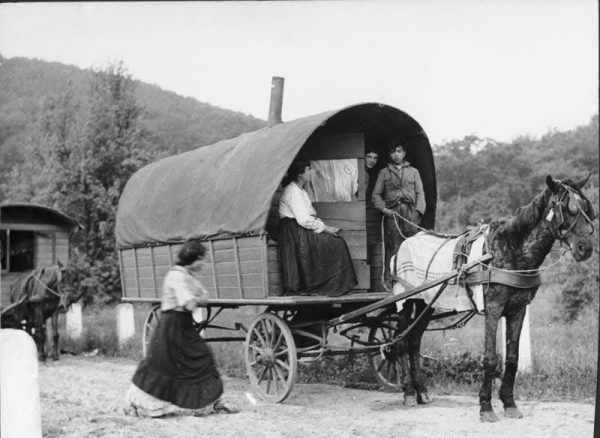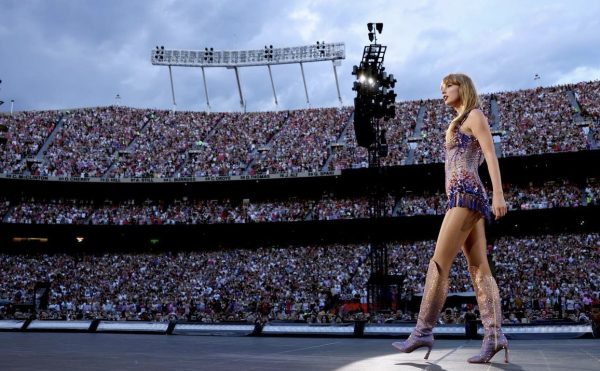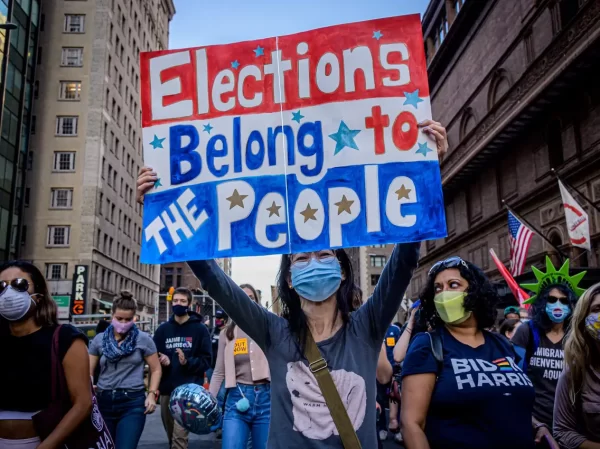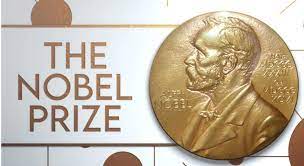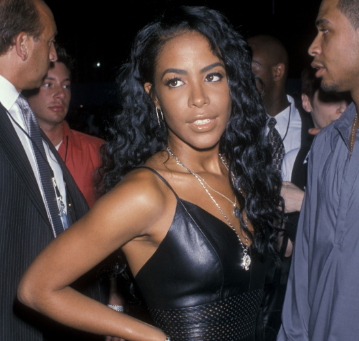The Undying Relevance of the Dead Kennedys
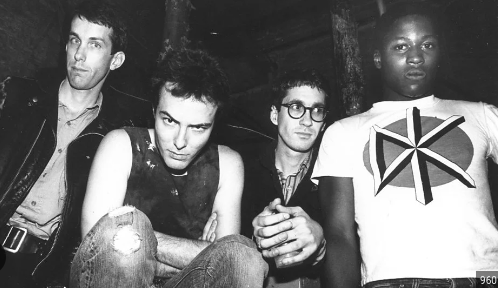
From left to right: Guitarist East Bay Ray, lead vocalist Jello Biafra, bassist Klaus Flouride, and drummer D.H. Peligro
On September 2, 1980, American Punk Rock band The Dead Kennedys released their first album, titled Fresh Fruit for Rotting Vegetables. Over 40 years later, in February of 2022, their lyrics are more relevant than ever. Let’s rewind.
The Dead Kennedys were officially formed in 1978, originally including East Bay Ray (real name Raymond Pepperell) on guitar, Klaus Flouride (Geoffrey Lyall) on bass, Ted (Bruce Slesinger) on drums, and lead vocalist Jello Biafra (Eric Reed Boucher). Ted would leave the band in 1981, being replaced by D.H. Peligro (Darren Henley) and creating the lineup that most fans are familiar with. They would go on to release 4 official studio albums and a large number of singles, compilations, and live recordings. The band is still around today in some form, though more than half of the original members have either left or passed away.
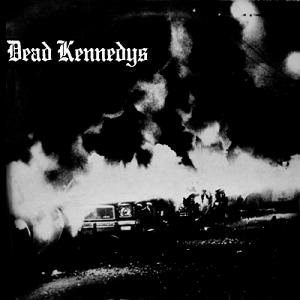
At the time the band was criticized as being tasteless and vulgar, especially due to their name referencing the assassination of John F Kennedy. However, East Bay Ray contested this in a 2017 interview. “The assassinations were in much more poor taste than our band…We actually respect the Kennedy family. When JFK was assassinated, when Martin Luther King was assassinated, when RFK was assassinated, the American Dream was assassinated…Our name is actually an homage to the American Dream.” Personally, I completely agree with Ray, as the band is far from anti-American. One lyric from the 1985 song “Stars and Stripes of Corruption” reads, “Our land, I love it too / I think I love it more than you / I care enough to fight / The stars and stripes of corruption.” The Kennedys were incredibly progressive, so much so that their lyrics are just as (or even more) relevant now than they were 40 years ago.
One of the best examples of this phenomenon comes from the song “Soup Is Good Food” from the 1985 album Frankenchrist. It’s hard to pick representative lyrics from this song, and I encourage you to take a few minutes and listen to the whole thing. However, the lyrics that stick out the most to me are as follows: “Machines can do a better job than you / And this is what you get for asking questions / The unions agree / Sacrifices must be made / Computers never go on strike / To save the working man you’ve got to put him out to pasture.” In recent years, we’ve seen a rise in artificial intelligence and automation in the workplace. While some may see this as the beginning of a utopia, where humans no longer have to work and can focus on things they enjoy, the Kennedys presented a more realistic view. Technology replacing humans
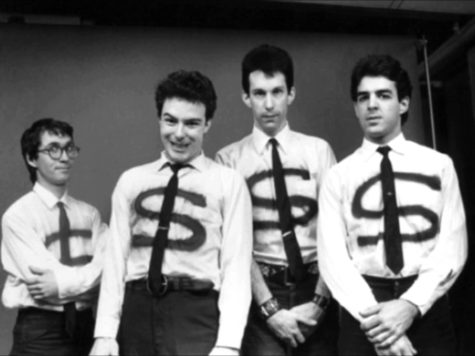
would not lead to utopia, rather more people would be forced into poverty due to the lack of jobs. We’ve come to a turning point as a capitalistic society: people have always been valued by what they produce, but what happens when the skill sets humanity has to offer become obsolete? This question grows more and more pressing each year and it was one that the Kennedys were not afraid to ask.
The Dead Kennedys were a masterclass in satire, evidenced by the song “Kill The Poor” from Fresh Fruit for Rotting Vegetables. Since its release, the definition of satire seems to have been somewhat lost over time. I have seen many self-proclaimed “satirists” on the internet say things like “I hate *insert marginalized group of people here.* Just kidding lol, you can’t get mad at me, it was a joke.” Compare this to “Kill The Poor,” which on first listen may seem to just be made for shock value and edge (who in their right mind would sing about dropping a neutron bomb on the homeless on top of such a groovy beat?!), but in reality, it delivers biting commentary on classism and politics. Told from the perspective of the corrupt elite, “Kill The Poor” tells a story of entitlement from the right side of the political spectrum and a lack of resistance from the left. Lead vocalist Jello Biafra’s haughty tone delivers this message clearly as he sings, “Jane Fonda on the screen today / Convinced the liberals it’s okay! / So let’s get dressed and dance away the night / While they kill, kill, kill, kill, kill the poor…”
The Dead Kennedys were incredibly critical of Hollywood and the music industry, as well as punk rock subcultures specifically. Some examples of this include “MTV-Get Off The Air”, “Pull My Strings”, and “Chickensh-t Conformist”. The latter feels especially ironic today. Lyrics like “The more things change, the more they stay the same / We can’t grow if we won’t criticize ourselves / The ’60s
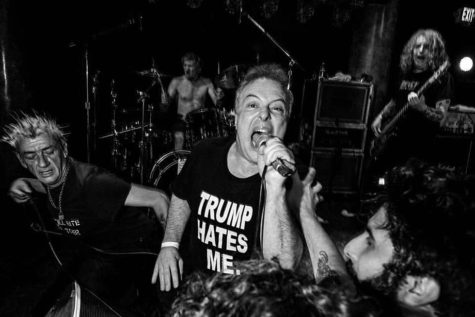
weren’t all failure, it’s the ’70s that stunk / As the clock ticks, we dig the same hole / Music scenes ain’t real life, they won’t get rid of the bomb / Won’t eliminate rape or bring down the banks / Any kind of real change takes more time and work” still ring true. The rise of social media has provided a great space for activism and change to spread, but much of it ends up being performative. A solid amount of modern punk rock attempts to encourage change, but it rarely goes anywhere. Some may say this is a problem with our generation specifically, but this has been an issue for decades.
While they tended to criticize the mainstream, the Kennedys weren’t afraid to call out issues in their own subculture. One of their most well-known songs is a single titled “Nazi Punks F— Off”, later incorporated into the album Plastic Surgery Disasters/In God We Trust. In the 70s and 80s, there was a pervasive issue in the punk scene of neo-nazis attempting to insert themselves into the subculture. People were naturally furious about this, leading to the creation of a huge number of anti-nazi songs, “Nazi Punks F— Off” being easily one of the most iconic. The message was, in short, “You aren’t real punks, and you’re not even real nazis. You’re just losers and no one wants you here.” People heard this loud and clear, and the Dead Kennedys helped to cement punk’s identity as an overall progressive and anti-fascist subculture (though it would be foolish to say the Kennedys were fully responsible, this reputation was built up by a large number of bands).
There’s so much more to be said about the Dead Kennedys and their lasting impact on the punk scene, but I think the best way to understand is to just experience their music for yourself. If you’re interested in listening to the Kennedys but aren’t sure where to start, I put together a handy playlist of my top 10 favorite Dead Kennedys songs. It can be found here.
